I Blessed The Rains Down In Africa
Divitya and the others prepare for the morning soccer session.
Aug 21, 2018
Before summer ’18, the closest I had ever been connected to the continent of Africa were the videos of my friends and I belting out the lyrics to Africa by Toto. Flashback to junior year, when I was bored out of my mind in my Consumer’s Ed class, I randomly ventured onto the CIEE website.
CIEE is an organization designed to provide students a variety of study abroad programs. Each one falls into the categories of language, service, or global discovery, with each summer program being either three or four weeks in length. As I was scrolling through, I stumbled across one title “Empowering Girls Through Sports,” which combined my ardor for service with soccer. I signed up immediately and a couple months later received an email stating I got a full scholarship. I was going to Africa.
Flashforward to the actual trip to Iringa, Tanzania– saying it was a long journey was an understatement. I had to fly from Chicago to New York to meet the five other girls in my group along with my program leader. We then flew into Switzerland, our flight to Dar Es Salaam, Tanzania following that. We stayed the night in “Dar” as we nicknamed it, and woke up at 4:30 a.m. for the 12-hour bus ride from the Capitol to our town. Sitting in tight spaces gets pretty exhausting after a while.
Rather than staying in a hostel-type location, each of us had our own host family to stay with. It was definitely nervewracking driving to each house in the pitch black of night, waiting for our names to be called. I was the third stop, situated with a family consisting of two young daughters (ages 7 and 2), their parents, and a housekeeper that didn’t speak English.
A Typical Day
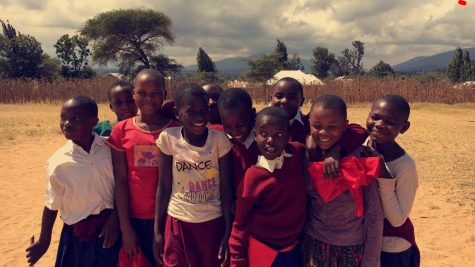
Each day we were picked up around 8 a.m. and drove to Illula, a town about 40 minutes away from where we were, to play and coach soccer with the girls from a local school. We spent about two days with any one school; the schools ranged from elementary to high school. Girls in Tanzania rarely got the opportunity to play soccer, since most of the equipment and coaches were devoted to the boys. Most girls were married off by 14, to husbands older to them. It really put first world problems into perspective.
After the session, we would eat lunch with the girls, and we could always count on having the same lunch every day, which consisted of rice with either beans or peas, along with a spicy sauce. Every other day we had bananas or sub-par watermelon, but I ate whatever I was given; this was not the time nor place to be picky. We had seen so many children and families without food to eat that it didn’t feel right to complain about anything we were given.
On our ride back to Iringa, most of us either napped or were mesmerized by the scenery that unfolded in front of our eyes. The mountains peaked high and various animals could be seen on the sides of the dusty red road. No matter how tired I was, I always tried to sit by a window so that I could soak it in as much as possible. 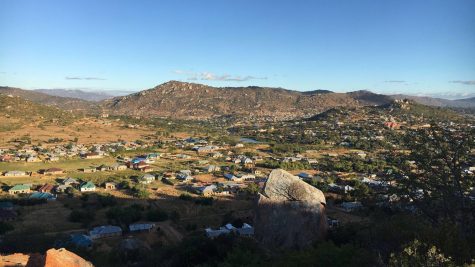
In less than an hour, we would haul all the equipment and our belongings into the CIEE classroom, which was located inside a building of Ruaha Catholic University. After we got out of the “Safari Car” as we dubbed it, all of us scrambled to wrap our Kitenges around our shorts– it was a RUCU rule that all women wear skirts or dresses. The classroom was cozy and would be where we would spend the following few hours either journaling or learning Swahili. One of our favorite phrases was “Ninaweza Kuoga,” which translated to, “we can shower” or “can we shower” depending on the intonation of our voices. Locals thought it was pretty odd that we kept belting out those words at literally any moment, but we always died of laughter.
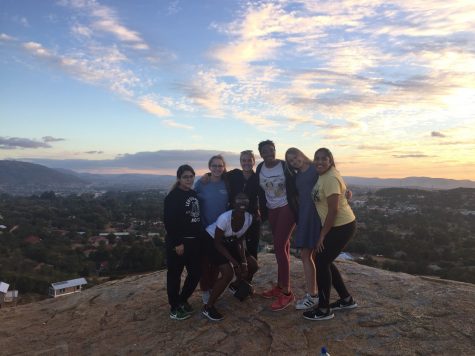
After spending a good chunk of time being scholarly, we would spend the late afternoons/evenings on various cultural outings. We would buy kitenges and congas at the market, hike, and once we even had a cooking class where one of the American girls attempted to kill a chicken (it didn’t work out). After the activity was completed, the car would pick us up and take us back to our host families, which could be as early as 6:30 or as late at 10:00, depending on what we were doing.
My host parents owned a restaurant and a bakery, so the parents were out of the house from 5:00 a.m to 9:00 p.m., which left me to hang out with my seven-year-old and two-year-old sisters, who were the sweetest and most adorable kids I have ever met. They were the primary reason why I liked going home because there was no wifi and the T.V. was usually on a Christian channel and I never was brave enough to change it. I would also shower, or as I liked to call it, “Bucket Bathing,” since it really was just a bucket of water that was warmed on the stove. You can just imagine how much I appreciate my shower in the States after coming back. The same goes for my Western toilet too, squatting over a hole in the ground is not a lifestyle that I was accustomed to, nor wish to do again by choice. After eating and spending time with the family, I’d excuse myself around 11 to go to bed, since I’d have to wake up early in the morning again and do it all over again.
Weekend Adventures
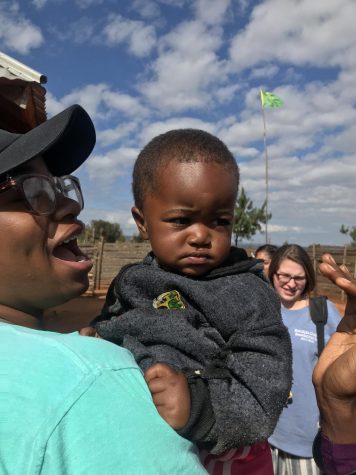
While my trip was 21 days long, I only had two full weekends in Tanzania, which were jampacked with cultural outings. The first weekend was spent in a rural village named Kilolo, where families were aided by government organizations. We spent the weekend in a hostel type living space, which proved to be a good way to bond with the other American girls. We all smushed into one room and spent hours talking, as well as dealing with two of the six girls throwing up constantly and barraging our program leader with details about her own adventures in Africa as a Peace Corps volunteer.
More importantly than making friendships, we also were able to visit families that were affected by HIV and/or poverty and see first hand how difficult it is to deal with these problems. We had also seen a clinic dedicated towards HIV prevention and treatment, but it was nowhere near as sanitary or progressive as hospitals in the US. In fact, we had even visited a traditional healer, which gave me even less faith in the country’s medical care.
However, the next weekend was the Safari Trip, something I had been looking forward to during the first few weeks. We drove a few hours to reach Ruaha National Park, obviously with the “Safari Car,” because what else would we travel in? With the roof popped up, all of us stood for hours gazing at the elephants, zebras, giraffes, impalas, and other creatures, while driving carefully on the narrow paths. That night we all stayed in cottages with a partner in separate locations. As my partner and I got out of the car and were walking to our room, we got word that there was a hyena roaming near us! We found an armed guard and became his shadow for the following half hour, scoring the area and finally finding a lone hyena, staring us down. Eventually, the hyena prowled away and we were escorted to our room, but the scares didn’t end then. We could hear hippos outside our room for hours during the night–while they seem non-threatening, hippos are actually one of the most dangerous animals. My partner and I tried to sleep that night, but it was a difficult task.
The next morning we ventured out on a mission to find a lion. We drove aimlessly for hours, passing other tourists, asking if they had seen any, and to our avail, most of them hadn’t. However, one driver told ours that there was a huge group of lions sleeping nearby, so we skirted to the location as fast as the “Safari Car” could take us.
Lions are quite magnificent in the wild.
Big Takeaways
One thing I learned was that it’s really hard to put yourself out of your comfort zone. For three weeks I had to stay in a country that I didn’t know much about, with a family I didn’t know, speaking an unfamiliar language, and becoming accustomed to the culture. The first two days in Iringa were probably the hardest. I did not have wifi (I ended up buying a sim card later on into the trip) so I couldn’t contact my parents, and I didn’t really know my family since most of my interaction was with the children at that point. I was on an emotional rollercoaster, being homesick, jet-lagged, and dehydrated. There were moments when I questioned why I even let myself go on the trip.
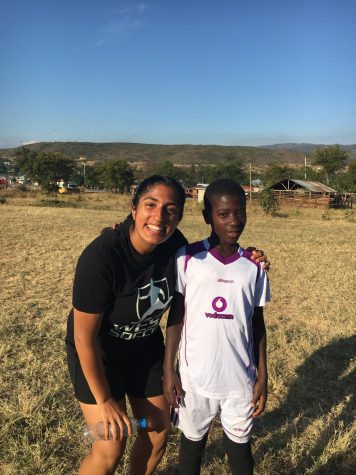
Once the third day hit, I was feeling much more relaxed and comfortable with everything. I found out that the culture is actually very conservative towards women, and I tried to stay covered as much as possible to avoid unwanted attention. I got into a habit of refilling my water bottle with filtered water in the classroom before we ventured off for our afternoon activities. I even used my broken Swahili in the house with my family, to their absolute delight. I learned to accept a diet filled with carbs because everyone exclusively ate ugali, rice, and fries.
Would I do it again?
After coming back, almost everyone I talked to wanted to know if I would ever do something like this again. The first few times, I had to really ponder over an answer, because I was stumped.
I came back to the United States on July 1st, and I came back a different person. A more experienced person. A more open an understanding person. A more worldly person. This trip impacted me in ways I couldn’t even fathom while I was there, and I am so thankful for my adventure and the people that helped me have the time of my life in a realm unknown to me.
So, would I do it again?
Absolutely.
Asante sana, Tanzania!



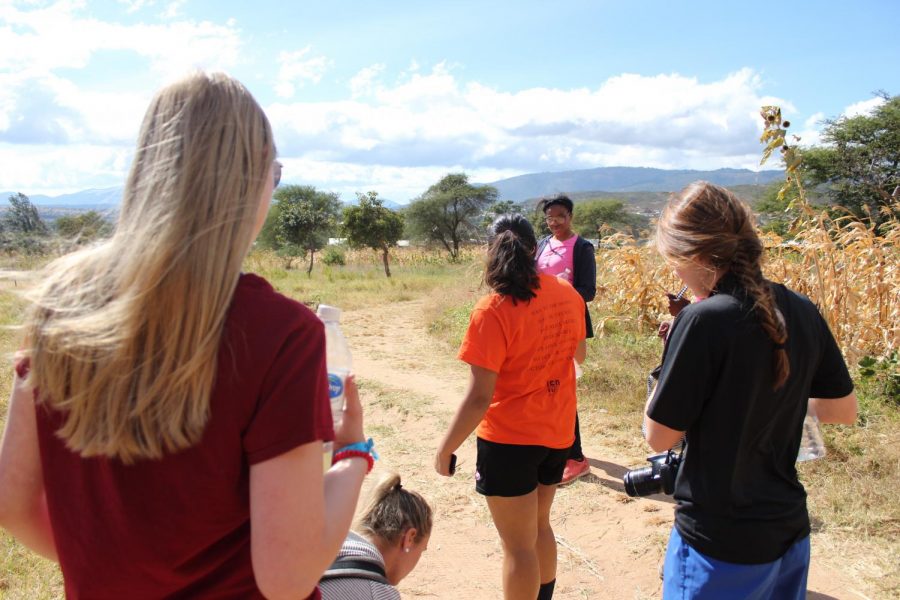
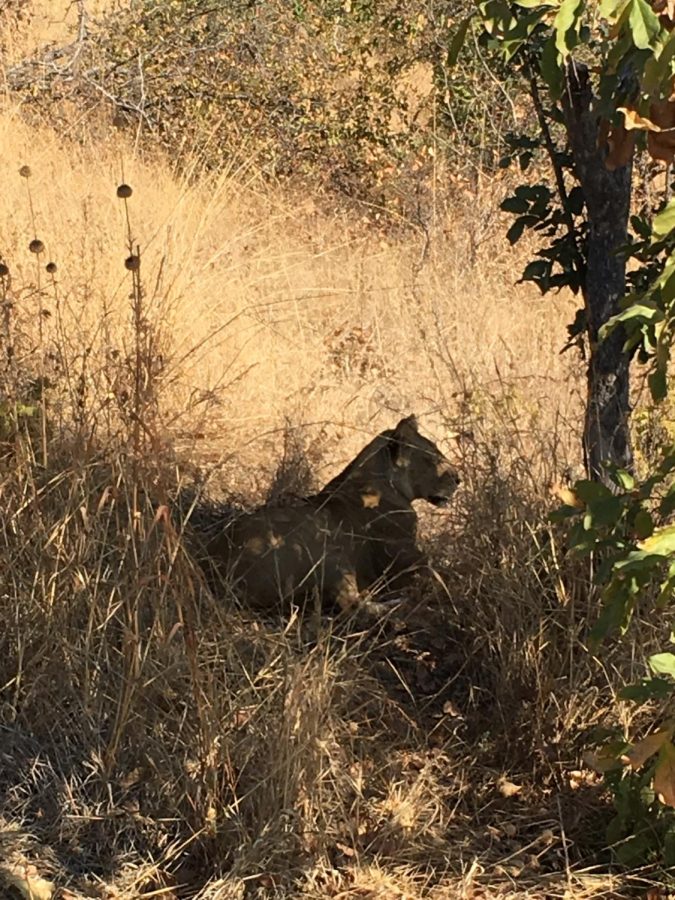
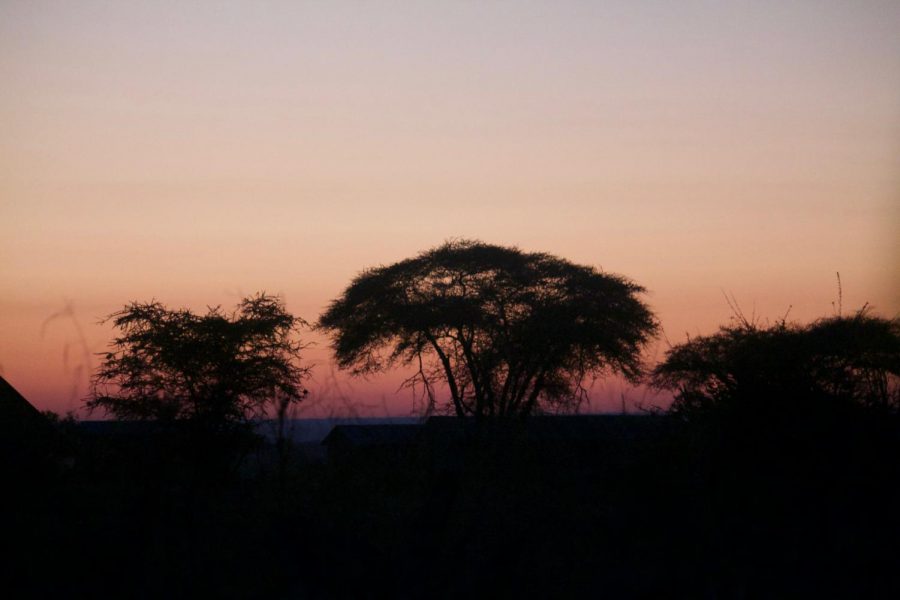

Annette Cowart • Sep 13, 2018 at 6:11 PM
You are a wonderful writer. Thank you so much for sharing and passing on your inspiration through words shared. We are with you the whole way through…. loving every minute of insight, impact, reflection. You have brought Tanzania alive and your service time there alive!
Mayur • Sep 5, 2018 at 11:52 AM
Hi Divitya: You have captured your experiences & presented it in a direct & fascinating way. Well done. I am sure that other young volunteers would be motivated by your narration to travel outside their comfort zone to share & teach skills to others. If possible, please add a photo of your host family. All the best for future activities